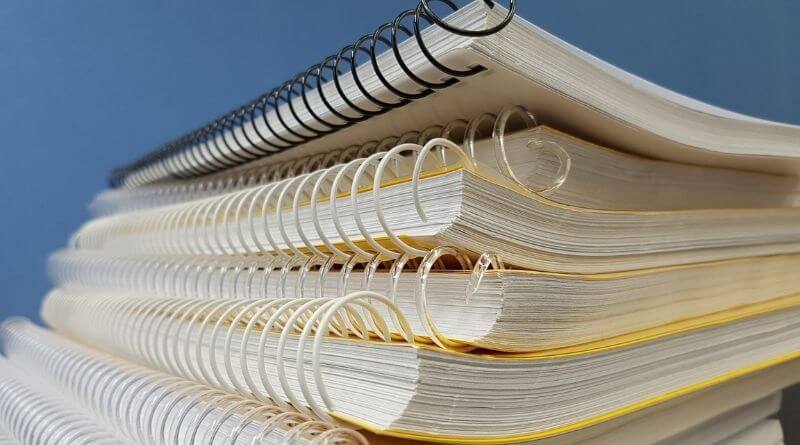Economics is a subject that is offered to all CBSE students studying in Classes 11 and 12. While Commerce students are required to study this subject as part of their syllabus, Economics is also offered to students who have opted for Humanities or Sciences. Since Economics is a subject that offers insights into many careers, a lot of students choose to study it in Class 11. However, students must know how to efficiently study Economics so that they can benefit from it. Note-taking is a study technique that has been highly recommended for decades, as it helps students compile information in a personalized manner.
Develop the skill of note-taking
Note-taking is a skill that needs to be learned and perfected. The key to effective note-taking is to explore different techniques since each student is unique and will have different preferences. Students should try out various methods of taking notes to figure out which one is suitable for their personal requirements. Students should remember that their notes are for their personal use alone, and need not be perfectly formatted or decorated. The only thing that matters is that the notes are to be organized and presented in a way that the student can understand what they have written. It is recommended that students use laptops for taking notes since these digital notes can be easily edited and restructured. Additionally, students will have the advantage of having all their notes in one secure space that they can access easily. However, taking notes on paper is just as effective, and should be done in the absence of an electronic device.
Once in class, once at home
Enhancing your notes is the key to having better notes. In the classroom, students should make sure that they are jotting down most of what their Economics teacher is sharing, as this is to be the base for any future notes that they take. Once the student is back at home, they should go through the classroom notes and make them more detailed and informative to turn them into personal study material. Students should refer to multiple sources while enhancing their notes, in order to develop a more complete understanding of the concept. The NCERT Books Class 11 Economics are a fantastic resource that students can use to get precise and flawless notes. Even though these books are intended to be utilized primarily by Commerce students, they can be used by any student studying economics, regardless of the stream they belong to.
Make the subject relatable
While taking down Economics notes, students should try to relate the topics and concepts with other subjects that they are learning. For example, Commerce students can attempt to establish links between their Economics notes and what they have been learning in Accountancy or Business Studies. Humanities students can do something similar with subjects such as Sociology and Political Science. Doing this makes the subject seem much more accessible and interesting, and increases the student’s overall understanding of the field they wish to specialize in. Students can make Economics notes incorporating these links with other subjects in Class 11 so that they have more cohesive notes that they can refer to for and even after the Class 12 board exams.
Customize your notes
In order for notes to provide students with a quick overview of a topic, they need to be structured in a way that makes sense to the student. Some students find it helpful to take notes in the way the Class 11 Economics exam paper is designed, where they come up with their own questions about different topics in the syllabus. This allows them to come up with answers to their questions during the note-taking process itself. Other students like to arrange their notes according to chapter, but prefer to keep their charts and graphs in a different folder or notebook, which helps them to access their notes quickly and easily. Some students enjoy decorating their notes, as it makes the notes look more attractive, and makes them more eager to study. Students who customize their notes according to their preferences and style are more likely to benefit from them.
Keep it simple
Students can make their notes as short and precise or as detailed and informative as they want. However, it is suggested that notes should be kept fairly brief, as they are not expected to replace textbooks and other reference material. A student’s notes should act as touchstones- words or phrases that remind the student of larger and more complex concepts. Students should not be writing down everything they come across in their books, as this serves no real purpose. Key concepts in Economics, dates, acronyms, significant events, etc are all good candidates for being included in a student’s notes. Long and complicated words, technical jargon should be avoided as the notes are meant to simplify the subject for the student.
Be consistent
Note-taking is not something that can be done once or twice and then forgotten. To reap the benefits of their notes in both Class 11 and 12, students must ensure that they are meticulously revising and updating their notes. Notes for a topic should be taken regularly while it is being taught, and should be updated once the topic is complete. Once a student is fully satisfied with their notes for a chapter, they can start revising with the help of their notes.
Students tend to stop taking notes halfway through the academic year as they feel it is too time-consuming. However, notes will only be useful if they are complete and students who can push through and consistently keep taking notes will have a significant advantage over others by the end of the year. These students can retain large amounts of information, are able to use their notes as flashcards before their exams to test themselves, and they also have a comprehensive summary of the Class 11 Economics syllabus that they can later use for their Class 12 board exam preparations.









